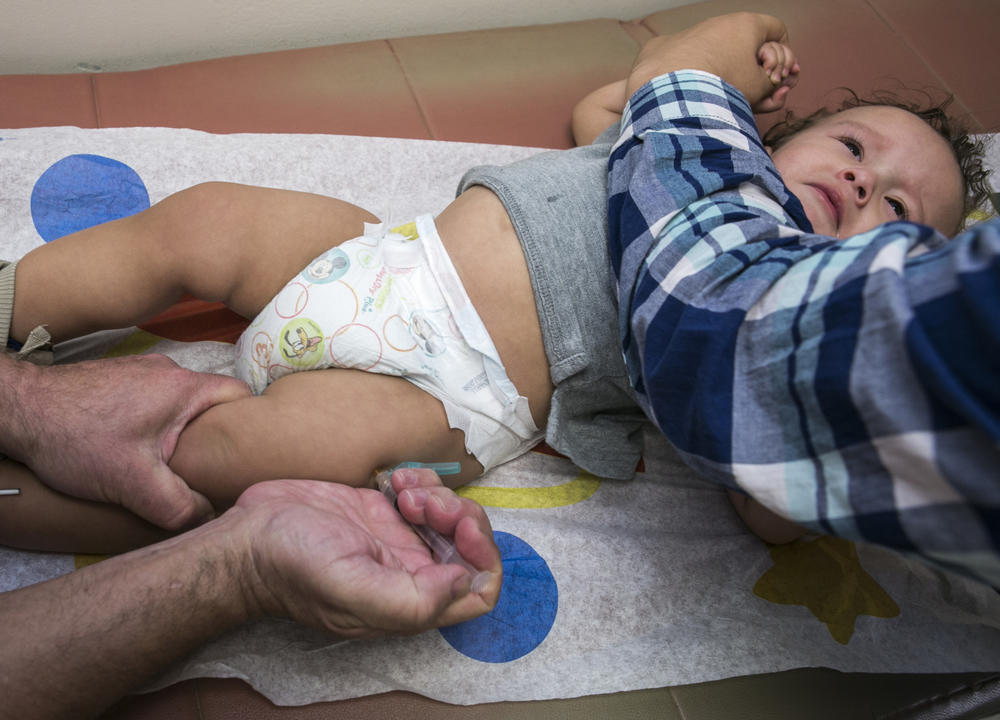
Caption
In this Jan. 29, 2015, file photo, pediatrician Charles Goodman vaccinates 1-year-old Cameron Fierro with the measles-mumps-rubella vaccine, or MMR vaccine, at his practice in Northridge, Calif.
Credit: AP Photo/Damian Dovarganes, File

